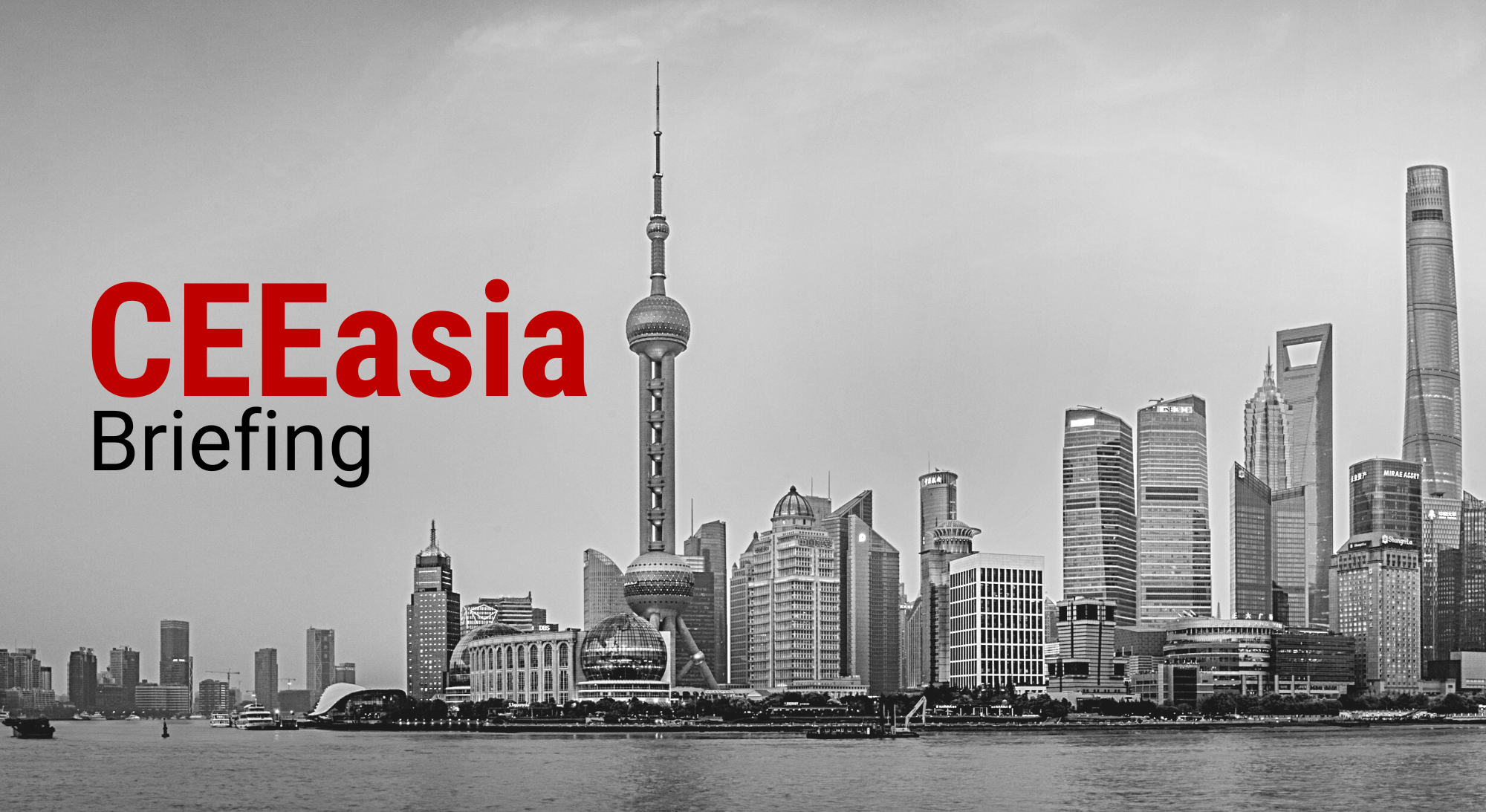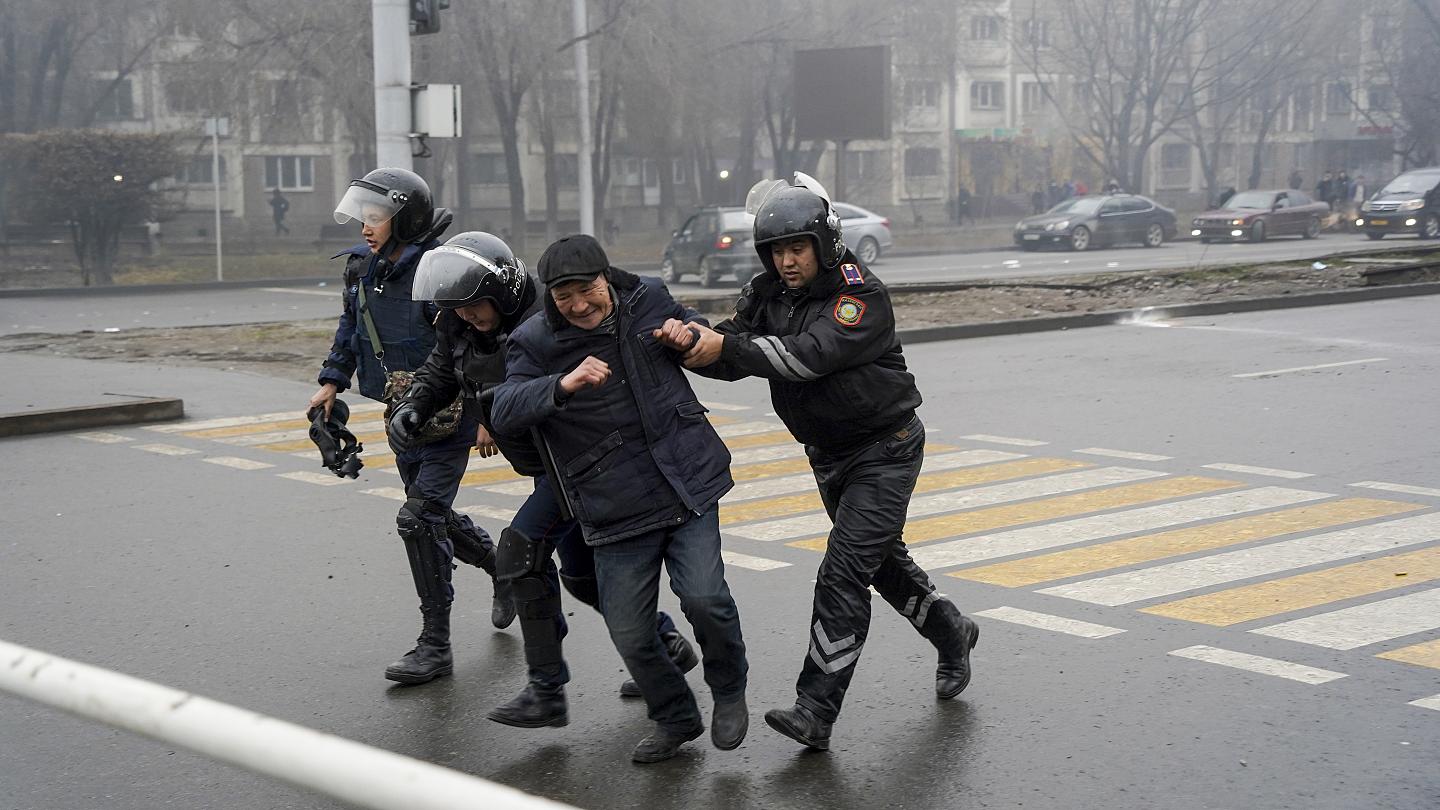Welcome to the 6th issue of the #CEEasia Briefing.
In this issue, we dissect the following topics:
- West’s changing approach towards China
- Taiwan sparks tensions between Czechia and China
- Japan & the EU in the times of COVID-19
- Tackling double taxation between Asia and CEE
Do you need to know more about East Asia? Don’t hesitate to shoot us a message about custom analysis tailored to your needs.
West’s changing approach towards China
What’s going on? In the past month, several developments continued to highlight changing approaches towards China. First, on 17 June, the European Commission published the White Paper that addresses foreign subsidies that are distorting competition inside the EU. Second, NATO Secretary-General Jens Stoltenberg made comments during the launch of NATO2030 initiative that focused on China and the changing balance of power.
This means… The paper by European Commission proposes the right of competent supervisory authorities to act upon any elements it considers relevant and proceed with a preliminary review to examine whether there is a foreign subsidy that may distort the internal market. The threshold for this is set at an amount of EUR 200 000 granted over a consecutive period of three years. Currently, there are no EU rules on foreign subsidies, which virtually makes them exempt from strict EU state aid rules, giving foreign state-subsidized enterprises an advantage over their European competitors.
Why does it matter? While the proposal appears to counter Chinese subsidies that are often perceived as a way for Chinese influence in Europe, it also resonates with the comments by NATO secretary made only a week before the publication of the White Paper. Stoltenberg once again highlighted China’s economic rise as presenting a number of challenges but this time also alluded to a more active role by NATO in the Asia-Pacific where it should become a ”stronger political alliance”. In addition, he also spoke about China’s disinformation activities and its second-largest defense budget in the world. While Stoltenberg was quick to reassert that NATO does not see China as a threat, his remarks are in line with the recent shift in China narrative by NATO that in December 2019 first time acknowledged China as a challenge to its environment.
Further reading:
Politico: Brussels plans to counter Chinese and US subsidies above €200,000
European Commission: White Paper on levelling the playing field as regards foreign subsidies
NATO: Remarks by NATO Secretary General Jens Stoltenberg on launching #NATO2030 – Strengthening the Alliance in an increasingly competitive world
Taiwan sparks tensions between Czechia and China
What’s going on? Miloš Vystrčil, the president of the Czech Republic’s Senate said this month that he will visit Taiwan and lead a delegation of political and business leaders despite threats by China. The trip is planned later at the end of August and comes after the death of Jaroslav Kubera – Vystrčil’s predecessor and a long-time supporter of Taiwan – who was planning to visit the country in February.
Going deeper… The announcement comes at the back of the improvement of Czech-Taiwan relations which gained momentum during the COVID-19 outbreak. In April, the country signed a partnership with Taiwan to fight the pandemic which was the first of its kind. The momentum was also added to by increasingly critical public discussion towards China in the Czech Republic.
Why does it matter? The move has angered China and led to a publication of an article by Global Times, state-backed tabloid, titled ”China will precisely retaliate against Czech Republic Senate speaker who plans to visit Taiwan”. The article suggests that China might retaliate and hit the politicians who provoke China individually so it can avoid harming the Czech companies in China. These Chinese tactics appear to be motivated by a division between the Czech Senate and the Government which appears to be more neutral on China-related issues.
Further reading:
ČT24: Šéf Senátu Miloš Vystrčil oznámil, že poletí na Tchaj-wan. Počítá s vládním letadlem
Global Times: China will precisely retaliate against Czech Republic Senate speaker who plans to visit Taiwan
Focus Taiwan: Taiwan, Czech Republic forge partnership over COVID-19
The Diplomat: Why Taiwan matters for the Czech Republic
Japan & the EU in the times of COVID-19
What is going on? Leaders of the EU and Japan held a virtual meeting last month to discuss matters related to the COVID-19 pandemic. Both parties agreed to avoid unnecessary travel restrictions and inappropriate measures to contain the pandemic that could cause further disruption to global supply chains and create unwanted trade barriers. The EU and Japan also highlighted the necessity to work together to defend multilateral cooperation against the virus.
Going deeper… Close cooperation and enhanced coordination of efforts became an important point for both parties which also strive for economic recovery and international trade restoration. The EU and Japan had signed an Economic Partnership Agreement which has been in force since last year and might become a supportive tool to strengthen bilateral cooperation in the times of COVID-19 crisis. Moreover, the two partners could also build upon their Strategic Partnership Agreement as well as the Partnership on Sustainable Connectivity and Quality Infrastructure.
Why does it matter? Japan is the EU’s second-biggest trading partner in Asia after China. If both parties maintain the high level of cooperation and use their potential in the time of the global crisis, taking advantage of the two agreements Tokyo and Brussels signed in 2019, they might further enhance bilateral trade and even investments to boost economic cooperation. Last year, under the Economic Partnership Agreement, the bilateral trade between the parties was growing almost 6 percent. The CEE’s export to Japan has also seen significant growth. Also, Japan is expected to gradually ease the coronavirus travel restrictions for foreign nationals to enter its territory. In the first phase, it allows entry of up to 250 foreign travelers per day from Australia, New Zealand, Thailand, and Vietnam. Some of the European countries are likely to be included in the second phase.
Further reading:
Euractiv.com: EU and Japan commit to avoiding ‘unnecessary barriers’ in times of COVID-19
The Japan Times: COVID-19 crisis could make Europe a real global force
Kyodo News: Japan plans to let in 250 foreigners daily under eased travel curbs
Tackling double taxation between Asia and CEE
What is going on? The Japanese Ministry of Finance announced that the Double Tax Agreements with the Czech Republic signed in 1977 and with South Korea signed in 1998 would be covered under the Multilateral Convention to Implement Tax Treaty Related Measures to Prevent Base Erosion and Profit Shifting (MLI) signed in 2017.
Going deeper… In May, the Czech Republic and South Korea deposited their instrument of ratification for the convention at the OECD. The MLI, which modifies the application of thousands of bilateral tax treaties intended to eliminate double taxation, has been thus signed by 94 countries so far and ratified by 47 of them. By signing the convention, the Czech Republic and South Korea signaled their commitment to preventing the abuse of tax treaties and base erosion and profit shifting by multinational enterprises, to further mitigate exposure to double taxation, and to improve dispute resolution. In the case of the Czech Republic and South Korea, the MLI will enter into force in September 2020.
What does it mean? The Czech Republic has committed to implement only the so-called minimum standard, including the general anti-abuse provisions under the principal purposes test (PPT) and the series of provisions of the mutual agreement procedure (MAP) which will apply in case a dispute is not resolved through mutual agreement procedure within two years. The MLI covers all double tax treaties signed between the countries which already ratified the MLI. In the case of the Czech Republic, 52 treaties will be covered starting from January 2021, however over time, more will follow as ratification progresses in other jurisdictions.
Further reading:
OECD: Czech Republic and Korea deposit their instrument of ratification for the Multilateral
Japanese Ministry of Finance: Application of the MLI to the Tax Treaty between Japan and Czech Republic
KPMG: ČR uložila MLI do depozitáře OECD







